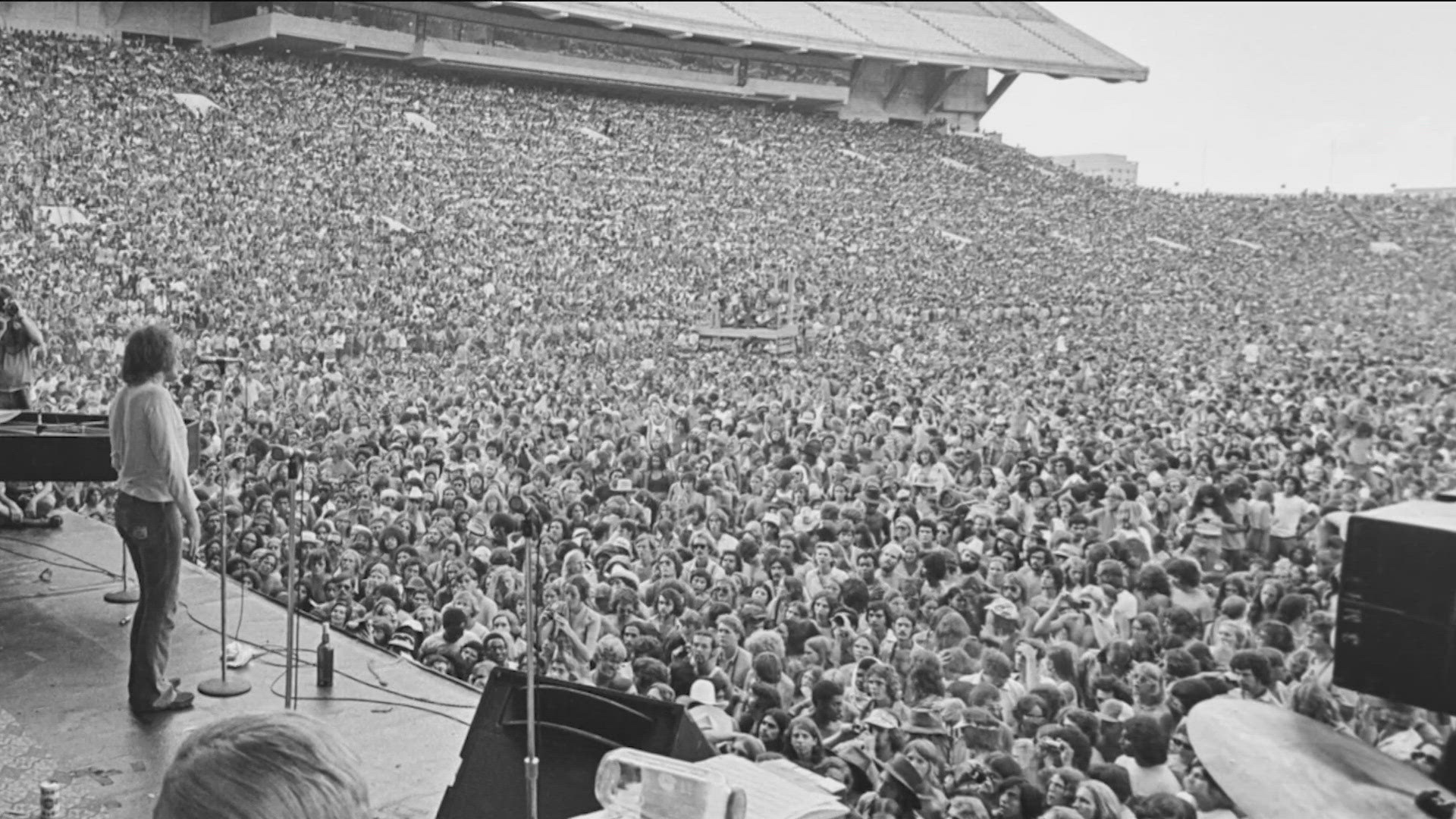AUSTIN, Texas — For young Nelson Duffle, the Labor Day weekend concert at the University of Texas's Memorial Stadium was a dream come true.
A longtime rock music fan from the small southeast Texas town of Silsbee, then-18-year-old Duffle had just moved to Austin to begin his freshman year at UT.
It would become a concert that he remembers vividly today, even though it happened 50 years ago this Labor Day weekend. On the bill were ZZ Top, Bad Company, Santana and Joe Cocker.
“I still remember when Jimmy Page [from Led Zeppelin] suddenly showed up and took to the stage to jam with Bad Company,” Nelson said. “When his set was over, I watched him walk alone down a ramp to his car. I couldn’t believe it.”
Duffle was among the 80,000 people that day who managed to squeeze into the stadium. The stands and the field were blanketed with people who were packed shoulder to shoulder.
But with the music also came a serious a problem. A few hours after the concert began, ice, food and water ran out. The temperature was in the 90s and the humidity was high. Fans began passing out. There was no EMS at the time. For many, the concert became a medical emergency.
“We had a great time, but it was clear that a lot of people were suffering,” said Austin public relations executive and former KVUE news anchor Ron Oliveira, who was in the stands for the concert right before beginning his sophomore year at UT.
“I later learned that my future wife was among the people who passed out in the hot sun,” Oliveira said. “She was rushed inside a medical triage area and recalls that as she slowly woke up, Carlos Santana was standing over her, praying for her recovery.”
How’s that for a memory from the concert?
The idea for the music celebration had begun the year before. The UT student government hatched the plan to make up for the money it lost when its funding was cut.
The stadium was sacred ground for Texas football fans, and particularly for legendary UT coach Darrell Royal. But he agreed to allow it to be used for the concert after having been assured that only about 10,000 to 20,000 tickets would be sold. No one at the time predicted that 80,000 would show up.
It’s been reported that after the concert was over, Royal was angry and upset that the stadium, including its expensive Astroturf, had been damaged.
Both Oliveira and Duffle, who also became an Austin television news anchor and now heads his own PR firm in Washington, D.C., say that the good outweighed the bad.
“It was an incredible time,” Duffle said. “Moving to Austin in the 1970s, getting to see Jimmy Page and being a part of rock music history is something you never forget.”

